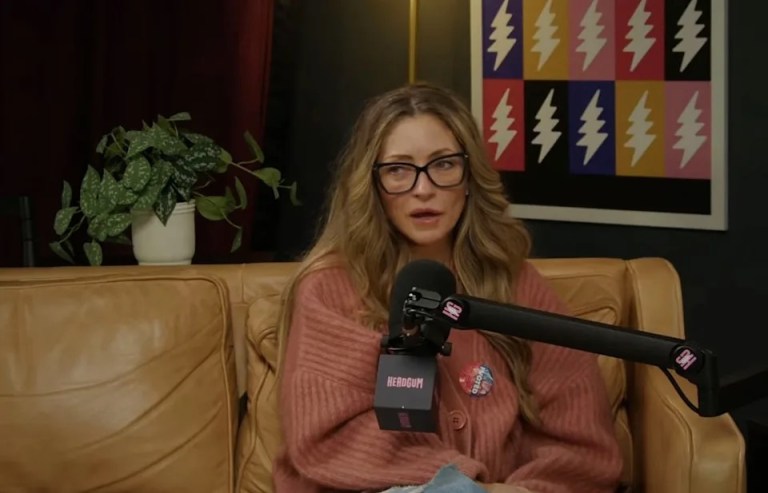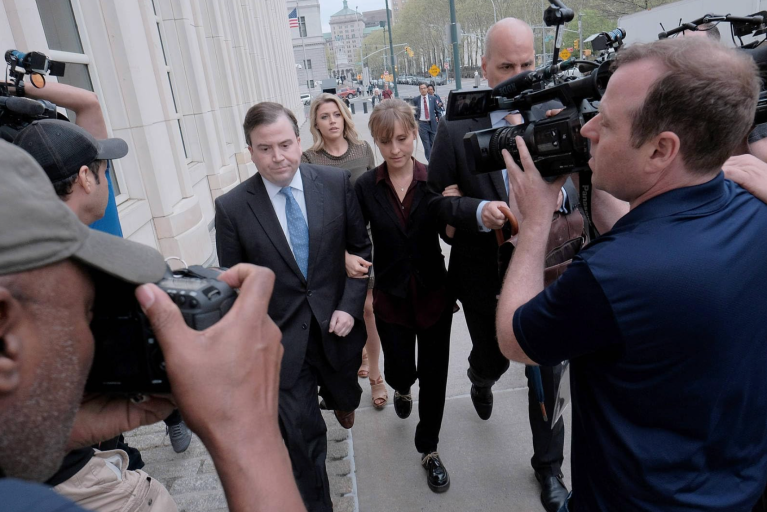
Airing Dirty Laundry
And now, with a new name and the false, clean sense of erased history, he takes a train and joins his cousin in Georgia, where an untangled root of his family strain found soil before. He finds himself in Savannah (or possibly Marietta, or Bainbridge, where he will one day be forgotten in the amalgam…
i.
This is the folklore that we tell in my family. I suppose you should imagine it in a Yiddish accent.
Great-Grandfather Shlomo leaves a shtetl — one that no one quite recalls, an Ostropol, or a Chelm, one of those places you only find in a memory — and when he arrives in America, in the movement of a sentence, he is suddenly Solomon. And now, with a new name and the false, clean sense of erased history, he takes a train and joins his cousin in Georgia, where an untangled root of his family strain found soil before. He finds himself in Savannah (or possibly Marietta, or Bainbridge, where he will one day be forgotten in the amalgam of the family burial plot, a plot he will buy himself) and begins his tenure at his cousin’s Laundromat. And here it seems to be, a New World dream, saturated with molasses and detergent, and festooned with mythic clouds that turn the sky into an unhinged jaw.
In two years, three tops, he sends for his wife and two children, a boy named Samuel and a second child, a toddler or an infant, one whose paternity my mother still speculates. (According to ship ledgers accumulated by a curious family historian, the baby is recorded on the embarkment of the steamer, and disappears from the legend upon departure, name unknown. Perhaps its name is the same name of an uncle; perhaps I have spoken its name in greeting to a friend that answers the telephone.) I imagine that Solomon’s wife unwinds her babushka in an act of subversive reverence, shocked from the breezes that unfurl from the Gulf, but even more so from the face of her husband, a smooth-cheeked canvas. This is what it means to be American, she must think.
They soak sheets, they go to the market, they wring sheets, they replace old children with new ones, they hang sheets, they save money, they dry sheets, they sleep. Nearby Savannah lends itself to gentility, to iced drinks with mint sprigs and undisturbed pools in country clubs. This is what Solomon craves more than anything: a membership at a country club and a place in a merchant’s association. And so he goes one day to the entrance of one of these clubs, the Savannah Golf Club. Walks up to a lacquered desk, and demands in a quiet, Yiddish-riddled accent, that he would like admittance. Someone gets a member of the board, dripping in his striped one-piece (before the time of seersucker), dignified with his flaxen whiskers (of course he has whiskers), greened with pool-water. The member of the board takes one look and thinks: this…this could be a problem.
ii.
In my family, this is the part in the story when someone mentions the Klan, because in these kinds of stories they are poised and loaded at the proscenium wings, on the edges of fields, waiting on quivering, wound haunches. This is also the part where I recall the story of Leo Frank, a purported distant relative of my mother’s family, and how he was wrongly accused of raping and murdering a thirteen-year-old girl in a pencil factory, where he was employed as some sort of manager; how his trial was sensationalized, how while waiting for his appeal, he was taken from his cell by a mob of white men with the help of a sympathetic jailer and a simple key, how he was led to a field with a tree and lynched; how these men took pictures of his pendulous body as mementos to show their children, how the event became a nadir for the resurgence of the Klan, how someone decades later wrote a musical about it.
(And I am back in eighth grade in Pittsburgh, on a field trip to the Andy Warhol Museum with my history class, at a gallery displaying mementos created from similar lynchings, postcards and tokens of love. There is a picture of Leo Frank. Billie Holiday’s “Strange Fruit” echoes throughout the gallery. I show my teacher. Mr. Dugan doesn’t believe me.)
And then we go back to the story, with this board member and Solomon. The member of the board speaks slow, thickened by whisky sodas, and explains that there is, above all, a certain type of heritage, and toleration only goes so far. There is, he says, a different kind of organization apart from the merchant’s association, one that all board members are a part of. Solomon understands the codex of his silences, and the type of men that come for his congenial black customers at the Laundromat, for men like him.
Well then, says Solomon, I wish to join your Klan.
iii.
My mother imagines that the train ride Solomon takes from Savannah to Atlanta is the first one he boards since he first came to Georgia by way of New York. I have never been to Atlanta, but in the family folklore, it is rimed with alabaster and astute peach trees, and this is what Solomon sees. He is on his way to meet with a Grand Wizard or a Grand Dragon — one of those officious Klansmen whose title no one bothers to correct — because the members of the board are too baffled by this immigrant’s deathly little wish. They rely on the tropes their mothers first taught them about race: these Jews, these blacks, they just don’t know any better. They see this as a small kindness.
As my mother paints it, this pair of men — my great-grandfather and the Klansman — are suddenly situated in a parlor, or perhaps an office, all plashets of slaking light and dense furniture of grooved mahogany. The Klansman is almost comical in his ripe villainy, with sulked shoulders, ballooned belly, wrists arthritic and rawed from night-riding. No one introduces themselves.
Mistah Myers, begins the Klansman, and then he is all tautology, much like the member of the board. Those people in Savannah are some funny folks indeed. He asks Solomon if he knows the implications of what he asks, if he knows the difference between his kind of people and Solomon’s kind of people. Solomon lets him go on, letting the Klansman’s words construct an American type of feudalism. It is, it seems, like listening to a fairy tale.
I understand, says Solomon after the Klansman is done, but you see. I clean sheets. You buy sheets. I thought we could have business.
As Solomon, once Shlomo, turns around and walks out of the room, the story ends, and so too does the Klansman.
iv.
I changed the version my family tells, because when my mother says it, the punch-line is “I sell sheets, you buy sheets, I thought we could have business!” But an exclamation point seems a tad too much, and I have never seen a Laundromat where one can purchase sheets.
In this version, I ruminate on history in my head, while my mother does not. She never tells the part about Leo Frank, and instead, I conflate two separate narratives until neither can be untwined, until it seems cruel to do so. But of course, I am leaving other things out, like how a distant cousin named David once owned a general store after Reconstruction, and how he went broke paying off the credit of his black shoppers, still penniless, so they would not be indebted by their former plantation owners, or how cousins of David’s fought in the Civil War on the side of the Confederacy to keep an antebellum system intact. When I tell this story, I do not speculate how much of it is possible, or how much of it is true; I do not ask my mother questions about if it was possible to travel from Savannah to Atlanta by rail, or admit that although this story is funny, it is also terrifying. I do not ask her if these people knew what it meant to be on the right side of history, or the wrong side, or if sides were even considered. I only know that the loss of memory does not mean that memory was never made, and I know that, in the end, none of us are ever clean of it. ![]()











